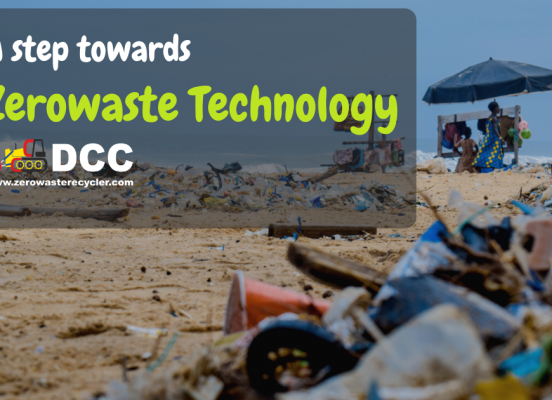A Step Towards Zero Waste Technologies
Zero Waste
Over the years, India has become the 15th biggest plastic polluter globally. In this 21st century, with a 1.38 billion population the country alone generates 26,000 tons of plastic waste per year. It is mainly due to rapid population expansion, industrialization, and economic development that continues to grow at a fast pace.
Today, it is putting huge pressure on resource availability, society’s ability to process, and safely dispose of plastic waste as it is being the biggest polluter. Keeping in mind the alarming statistics, the government along with many renowned companies are becoming more responsible towards the environment and picking up a zero-waste policy. In this article, we will explore the different methods to recycle plastics and why plastic waste management is important.
What does zero-waste mean?
The term “Zero waste” has been defined in various ways by different entities. In general, zero waste means to redefine the system and usage of materials. It is the way of eliminating or reducing the generation of materials that have no viable or economic option for end-of-use management.
Further, the generation of waste can be discarded using a variety of options including reducing, reusing, and recycling. Along with this, we create the thoughtful design and engineering solutions to conserve all the useful resources without causing any harm to land, water, or air that threatens the environment or human health.
Is Zero Waste and Plastic Free the same thing?
No, zero waste and plastic-free is not the same thing. However, plastic-free is just part of being a Zero Waste Technology. Interestingly, both the terms zero waste and plastic-free is gaining traction in 2020. Both are greatly hitting the headlines and raising awareness.
Zero waste has a much bigger concept as compare to plastic-free. The overall strategy of Zero Waste Technology is to completely eliminate waste or dispose of it correctly when they’ve reached the end of their life. On a practical level, zero waste means no waste is ever created. Implementing zero waste will eliminate the volume and toxicity of waste ad materials, conserve, and recover all resources without threatening planetary, human, animal, or plant health.
Why Plastic Waste Management is Important?
Recycling and responsible waste management can help beautify India and the world. Environmentalists and waste experts take plastic recycling seriously as there are many types of plastics that we cannot recycle while some plastic can be recycled.
Every year, 30 million tonnes of plastic being disposed of as solid waste. Due to this, we are running out of landfill space at an alarming rate. Along with this, it is reducing our natural resources and energy.
Recycling plastics must be taken seriously. Dumping plastics unnecessarily takes centuries to break down in landfills or the ocean. Therefore, all recycled plastics should be disposed of correctly to reduce landfills, conserve energy, and conserve the environment.
To know more, please check DCC.

